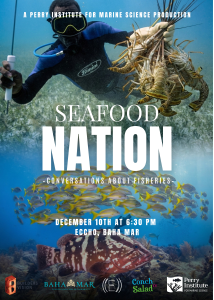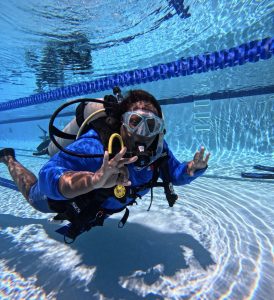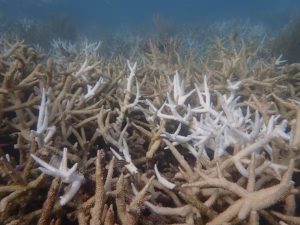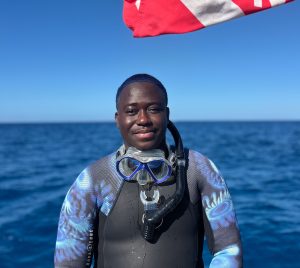The Perry Institute for Marine Science invites you to watch “We Among the Reef,” a compelling documentary that illuminates the significance of the Abaco Barrier Reef and the resilience of those dedicated to its preservation. Directed by Matthew McCoy of Conch Salad TV, this film is a powerful tribute to the culture, research, and unyielding efforts to restore one of the Bahamas’ most important natural treasures.
As we reflect on the devastating impact of Hurricane Dorian on the communities of Abaco and East Grand Bahama, “We Among the Reef” reminds us of the strength and determination required to restore both the reef and the livelihoods of the people who depend on it. The Abaco Barrier Reef plays an essential role in supporting local fisheries, protecting coastlines, and preserving the vibrant marine biodiversity of the Bahamas. This documentary beautifully captures the reef’s beauty, as well as the relentless dedication of marine scientists and local advocates working to safeguard it for future generations.
Marine scientist Dr. Krista Sherman, alongside local communities, shares her knowledge and passion for the Abaco Barrier Reef in the film, emphasizing its significance and the urgency of safeguarding it. Through stunning underwater footage and compelling storytelling, “We Among the Reef” immerses viewers in the beauty and challenges of this critical habitat.
This film was made possible thanks to the generous support of the Lyford Cay Foundation, The Nature Conservancy’s Vibrant Oceans Initiative, and research funding from the Disney Conservation Fund, Devereux Ocean Foundation, Moore Bahamas Foundation, Bahamas Protected Areas Fund, and National Geographic. These contributions have been vital in enabling post-Hurricane Dorian research and restoration work.
We encourage you to watch and share the story of the Abaco Barrier Reef’s journey toward recovery and the people who are tirelessly fighting to protect it.

Build a Coral Reef for the Holidays | PIMS x Partanna
PIMS is partnering with Partanna to build a 100m² carbon-negative reef. Rick Fox is matching donations up to $25k. Help us build a sanctuary for the future.

“Seafood Nation” Documentary Premiere Explores the Heart of Bahamian Culture and the Future of Fisheries
NASSAU, The Bahamas | December 5, 2025 – From the bustling stalls of Potter’s Cay to family kitchen tables across the archipelago, seafood is far more than just sustenance in

PIMS and Disney Conservation Fund Partner to Train 19 Government Divers
PIMS dive training in Nassau strengthened national coral restoration capacity across government agencies. Bahamas Dive Training Builds National Coral Restoration Capacity Last fall, between the months of September and October,

Florida’s Coral Reef Crossed a Line: What Functional Extinction Really Means for Elkhorn and Staghorn Corals
Reefs didn’t just bleach. They functionally vanished in one summer. A new Science study co-authored by researchers from the Perry Institute for Marine Science (PIMS) has found that Florida’s two

Q&A: Understanding the IDC Course at PIMS with Duran Mitchell
A former aquarist turned coral conservationist, Duran is passionate about understanding how all marine life connects. PIMS & IDC: Empowering New Dive Instructors for Marine Conservation PIMS & IDC: Empowering

Forbes Shines a Spotlight on Coral Reef Restoration in the Caribbean
When Forbes highlights coral reef restoration, it signals something powerful: the world is paying attention to the urgent fight to protect reefs. And solutions are within reach. Recently, Forbes featured Dr. Valeria


